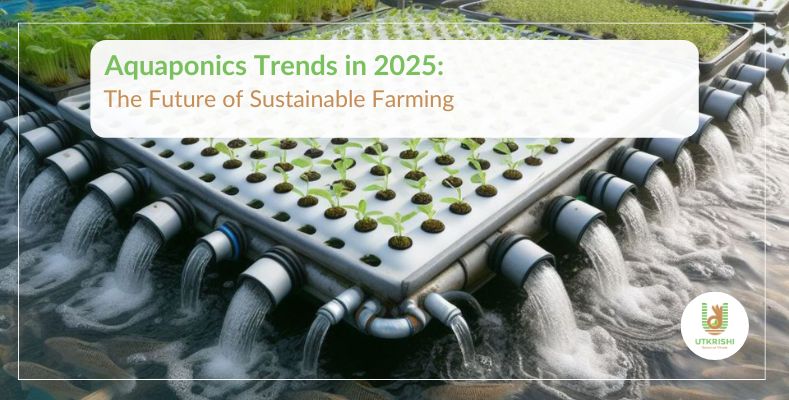Aquaponics, a revolutionary farming method combining aquaculture (raising fish) and hydroponics (growing plants without soil), has been gaining traction as a sustainable solution to global food production challenges. In 2025, aquaponics is no longer just a niche experiment but a growing industry driving innovation and sustainability. Here are the key trends shaping the aquaponics landscape this year:
1. Integration of Advanced Technologies
In 2025, aquaponics systems are leveraging cutting-edge technologies to optimize efficiency and productivity:
- IoT and Smart Sensors: Internet of Things (IoT) devices monitor water quality, temperature, pH levels, and nutrient concentrations in real time, ensuring precise control over the aquaponics environment.
- Artificial Intelligence (AI): Predictive analytics powered by AI are helping farmers anticipate system needs, such as when to add nutrients or adjust water circulation.
- Automation: Automated feeding systems and robotic arms for harvesting have reduced labor costs and improved operational efficiency.
2. Urban Aquaponics
As urbanization continues, space-efficient farming methods like aquaponics are transforming cities into hubs of food production:
- Vertical Farms: Multi-level aquaponics systems are being integrated into urban buildings, reducing the carbon footprint of food transportation.
- Community Projects: Urban dwellers are embracing aquaponics as part of community gardens, promoting local food security and sustainability.
- Rooftop Systems: Rooftop aquaponics farms are maximizing unused urban spaces, contributing to greener cities.
3. Commercial Expansion
The commercial viability of aquaponics is more evident than ever:
- Large-Scale Operations: Major agricultural companies are investing in aquaponics to meet the demand for organic and sustainably produced food.
- Export Opportunities: Countries with limited arable land, such as Singapore and the UAE, are adopting aquaponics for domestic consumption and export.
- Retail Partnerships: Supermarkets are partnering with aquaponics farms to offer fresh, locally produced fish and vegetables.
4. Focus on Sustainability
Aquaponics is celebrated for its minimal environmental impact:
- Water Conservation: Aquaponics uses up to 90% less water than traditional farming methods, making it ideal for regions facing water scarcity.
- Reduced Chemical Use: The symbiotic relationship between fish and plants eliminates the need for chemical fertilizers and pesticides.
- Low Carbon Footprint: Localized food production reduces emissions associated with long-distance transportation.
5. Education and Training
To support its rapid growth, the aquaponics industry is investing in education:
- Workshops and Certifications: Farmers and enthusiasts can now attend specialized courses on aquaponics system design and management.
- School Programs: Educational institutions are incorporating aquaponics into STEM curricula, inspiring the next generation of eco-conscious innovators.
6. Policy Support and Incentives
Governments worldwide are recognizing the potential of aquaponics to address food security and environmental challenges:
- Subsidies and Grants: Financial incentives are encouraging farmers to adopt aquaponics.
- Research Funding: Increased funding for aquaponics research is driving innovations in system design and scalability.
- Regulatory Support: Simplified regulations are making it easier for startups to establish aquaponics operations.
7. Consumer Demand for Fresh and Sustainable Produce
Consumers are increasingly prioritizing health and sustainability in their food choices:
- Traceability: Aquaponics farms offer full traceability, ensuring transparency in food production.
- Organic Certification: Many aquaponics products are meeting organic standards, appealing to health-conscious buyers.
- Local Sourcing: Shoppers are drawn to the freshness and reduced environmental impact of locally grown food.
In 2025, aquaponics stands at the forefront of sustainable agriculture, blending innovation with environmental stewardship. As the industry grows, it holds the promise of addressing critical challenges like food security, water scarcity, and urbanization. For entrepreneurs, farmers, and policymakers, embracing aquaponics is not just an opportunity but a necessity for a sustainable future.
Utkrishi Trade Net is committed to transforming agriculture by empowering FPOs with digital tools, a seamless marketplace, and flexible financing solutions. Our platform supports you at every stage, driving sustainable and profitable farming. Discover more at Utkrishi Trade Net and be part of this transformative journey.


